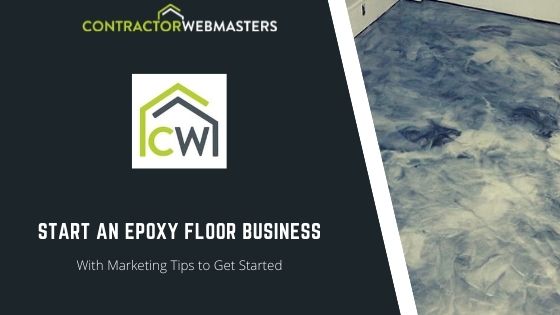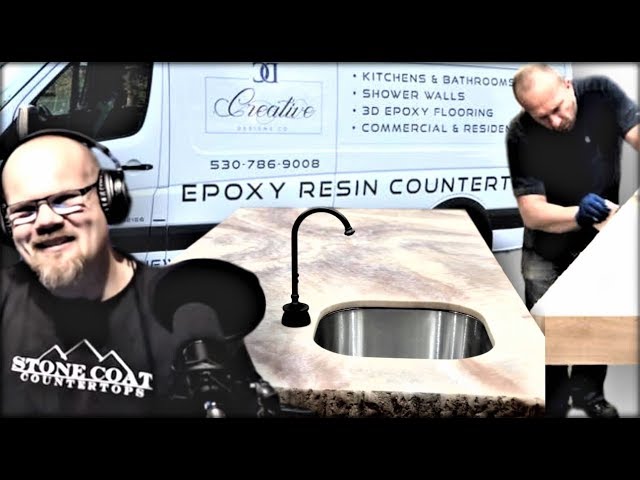If you want to start an epoxy business, there are a few things you need to know. First, you’ll need to choose the right epoxy products for your business. There are many different types of epoxy, so it’s important to do your research and select the products that will best suit your needs.
Once you’ve selected the right products, you’ll need to create a marketing plan and build a website to market your business. Finally, you’ll need to get the word out about your business by promoting it through social media and other channels.
How to Start an Epoxy Business?
- Decide what type of epoxy products you want to sell
- There are many different types of epoxy, so make sure you choose the right products for your target market
- Choose a business name and register it with your state government
- This will allow you to open a business bank account and file for any necessary permits or licenses
- Purchase the supplies you need to make your epoxy products
- This includes the resin, hardener, pigment, and any other additives or tools you need
- Create a website or online store to sell your epoxy products
- Make sure to include clear instructions and photos so customers know exactly what they are buying
- Promote your epoxy business through social media, online advertising, and word-of-mouth marketing
Epoxy Business Equipment
If you’re in the market for new business equipment, epoxy may be the way to go. Epoxy is a coating that can be applied to a variety of surfaces, including metal, glass, and plastic. It’s durable and resistant to scratches, stains, and corrosion.
Plus, it’s easy to clean and maintain. Here are a few things to keep in mind if you’re considering epoxy for your business equipment:
1. Epoxy is available in a variety of colors, so you can choose an aesthetic that matches your brand or interior design scheme.
2. It’s important to apply epoxy evenly and smoothly for the best results. Make sure you have the proper tools on hand (e.g., brushes, rollers) before starting the job.
3. Once the epoxy is dry, it’s very difficult to remove. So take your time and make sure you’re happy with the results before moving on!

Credit: www.contractorwebmasters.com
How Much Can You Make Doing Epoxy?
If you’re looking to get into the world of epoxy, you might be wondering how much money you can make doing this type of work. The answer is that it depends on a few factors, including your experience level, the type of epoxy you’re using, and the project you’re working on. With that said, let’s take a more detailed look at each of these factors so you can get a better idea of how much money you can make with epoxy.
Experience Level One of the biggest factors that will affect how much money you can make with epoxy is your experience level. If you’re just starting out, you won’t be able to charge as much as someone who has been doing this type of work for years.
That’s why it’s important to start off small and gradually increase your prices as you gain more experience. Type of Epoxy Another factor that will affect your earnings is the type of epoxy you’re using.
There are different types of epoxies available on the market, and some are more expensive than others. If you’re using a high-quality epoxy resin, then you’ll be able to charge more for your services since this material is more durable and provides a better finish. On the other hand, if you’re using a cheaper quality resin, then your prices will reflect that.
Projects The final factor that determines how much money you can make with epoxy is the project itself.
How Much Does It Cost to Start Epoxy?
Epoxy is a two-part system that must be mixed together before it can be used. The cost of epoxy will depend on the size of the project and the type of epoxy being used. For smaller projects, a kit that includes both parts of the epoxy system, as well as mixing cups and stir sticks, can be purchased for around $30.
Larger projects may require multiple kits or larger containers of each part of the epoxy system. The total cost of an epoxy project will also depend on the price of any fillers or colorants that are added to the mix. The most important factor in determining the cost of an epoxy project is the amount of time it will take to complete.
Epoxy cures quickly, so projects that need to be completed in a short amount of time will generally be more expensive than those with a longer cure time. This is because faster-curing epoxies typically have a shorter working time, which means that they must be mixed and applied more quickly. In addition, some fast-curing epoxies may require special equipment or ventilation during application.
Projects that require multiple layers of epoxy will also generally be more expensive than those with only one layer. This is because each layer must be allowed to cure before subsequent layers can be applied.
How Do I Start an Epoxy Garage Floor Business?
If you’re looking to start an epoxy garage floor business, there are a few things you’ll need to do. First, you’ll need to find a reliable supplier of epoxy flooring products. Next, you’ll need to get some experience installing epoxy floors.
And finally, you’ll need to market your business and find customers. Finding a reliable supplier is crucial for any business, but it’s especially important when you’re dealing with chemicals like epoxy. You want to make sure that the products you’re using are of the highest quality and that they will meet your customer’s expectations.
There are a few different ways to find suppliers. You can search online, ask other businesses in the industry for recommendations, or even attend trade shows specifically for flooring products. Once you’ve found a few potential suppliers, take the time to research them and make sure they’re reputable and have good reviews from other customers.
Installing an epoxy garage floor is not as difficult as it may seem at first glance. However, it’s still important that you have some experience before starting your own business. Many hardware stores offer classes on how to install epoxy floors or you could even shadow another professional installer for a day or two just to see how it’s done.
If possible, try to get some hands-on experience by installing an epoxy floor in your own garage (or someone else’s if they’re willing). This will give you a good idea of what the process entails and whether or not this is something you’re interested in doing long-term. Marketing is key for any business but especially so when you’re just starting out.
There are many ways to market an epoxy garage floor business – from online advertising and social media marketing to more traditional methods like flyers and word-of-mouth referrals. Figure out which marketing strategies work best in your area and focus your efforts there. It takes time and effort to build up a customer base but once you do, word will spread about your high-quality services and soon enough people will be coming to YOU for their epoxy floor needs!
What Do I Need to Start an Epoxy Floor?
If you’re looking to spruce up your garage or basement with a new epoxy floor, there are just a few things you need to get started. Here’s what you’ll need:
1. A clean surface – This is the most important step in getting a great epoxy finish. You’ll need to make sure that your floor is free of dust, dirt, and oil before starting. If not, your epoxy may not adhere properly or could even peel up over time.
2. Epoxy resin and hardener – These are the key ingredients in creating an epoxy floor. You can find them at any hardware store or online retailer specializing in home improvement products. Just be sure to get the right proportions of each component – typically, it’s two-part resin to one-part hardener.
3. Mixing bucket and stirrer – Once you have your resin and hardener, you’ll need something to mix them together in. Any old plastic bucket will do the trick here – just make sure it’s clean! You’ll also need a stirring stick or electric drill with a mixing attachment for this step.
4. Paint roller and tray – To apply the mixed epoxy evenly across your floor, you’ll need a paint roller and tray (or similar applicator). Be sure to get ones that are specifically designed for use with liquids like epoxy – regular paint rollers will absorb too much of the material and leave behind an uneven finish.
5 . Painter’s tape – This isn’t strictly necessary, but it can help create sharp lines and prevent accidents while applying epoxy (i.e., spilling it on areas you don’t want to be coated). Simply line the perimeter of your work area with painter’s tape before getting started.
Conclusion
This blog post covers the basics of starting an epoxy business. Epoxy is a two-part resin that can be used for a variety of purposes, including coating floors and countertops. It is a relatively simple business to start, and there is a growing demand for epoxy services.
The author outlines the steps necessary to get started in this business, including finding suppliers, marketing your business, and pricing your services. With some hard work and dedication, you can be successful in this venture.
I have been working as a freelance writer for newspapers and other websites since 2017. Most of the time, I have worked for clients in the USA, UK, Canada, and Australia. My work primarily focuses on the business, finance, and business tools category.

